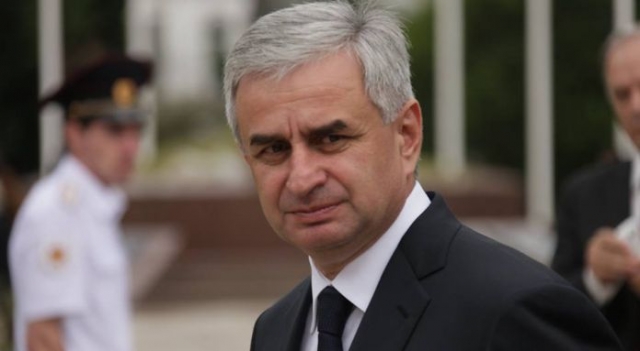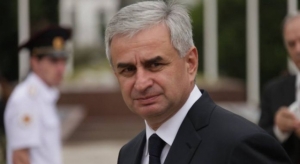Abkhazia’s Rebel Leader Says Ministers Must Inform MFA of All Foreign Activities
SUKHUMI, Abkhazia – The de-facto president of Georgia’s breakaway Abkhazia region announced Wednesday that all executive bodies are obliged to notify the breakaway region’s Ministry of Foreign Affairs about ongoing events in the region.
Raul Khajimba, the de-facto President of Abkhazia, urged his ministers to inform the MFA about all foreign visits to the region, including those to and from Russia, Abkhazia’s sole backer and military guarantor.
“It happens that the heads of departments leave Abkhazia on official matters of state without informing anyone,” Khajimba said. “If your foreign colleagues plan to pay official visits to Abkhazia, they must inform the MFA in advance,” he added.
In recent years, the secessionist government has taken steps to enhance the role of the Ministry of Foreign Affairs but has seen little in the way of tangible results.
Khajimba laid the responsibility to the Ministry of Foreign Affairs and complained that he did not receive any reports from MFA about the activities of executive bodies and officials.
Abkhaz Foreign Minister Vyacheslav Chirikba said there are dozens of local officials who regularly violate Abkhazia’s law on coordinating with the Ministry of Foreign Affairs concerning visits outside of the rebel region, including to Russia.
Chirikba later added that the ministry would inform Khajimba of all new violations of the law.
According to a decree signed in 2006 by Abkhazia’s former President Sergey Bagapsh, all executive bodies are obliged to inform the MFA of ongoing international activities, international relations, official visits, consultations and negotiations.
Russian-backed rebels in Abkhazia broke away from Georgia immediately after the collapse of the Soviet Union in the early 1990s. Moscow occupied and effectively annexed the area, as well as Georgia’s other breakaway South Ossetia region.
Moscow recognized South Ossetia and the other occupied Abkhazia region as independent states following the 2008 war. International law and the United Nations continue to state that the regions remain part of Georgia.
By Tamar Svanidze
Edited by Nicholas Waller












